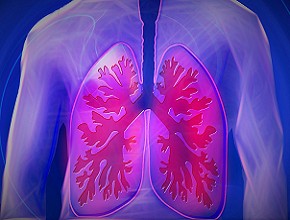Major GI bleeding in elderly individuals taking aspirin
Aspirin is widely used as a secondary prevention agent in patients who have suffered an acute coronary syndrome or ischemic stroke, as it confers a greater risk reduction for recurrent cardiovascular events than a risk increase in clinically important (major) bleeding.
The net clinical benefit of aspirin for primary prevention in patients without a history of prior cardiovascular events is less clear, especially in the elderly. To address this uncertainty, the ASPREE (ASPirin in Reducing Events in the Elderly) trial recruited 19,114 healthy, community-dwelling elderly (≥70 years) persons without a history of cardiovascular disease, dementia, or other chronic disease that could limit survival to <5 years. Patients were randomly allocated to receive aspirin, 100 mg daily, or placebo and were followed prospectively, with a median follow-up of 4.7 years. In the ASPREE study aspirin did not confer any statistically significant therapeutic advantage but was associated with a significantly higher risk for major bleeding (hazard ratio [HR], 1.38; 95% CI, 1.18-1.62).
This study focused on the risk for major gastrointestinal (GI) bleeding associated with aspirin use, defined as bleeding that resulted in transfusion, hospitalization, surgery, or death, and on risk factors associated with such bleeding. This knowledge is clinically relevant because the GI tract is the most common site for aspirin-associated bleeding and elderly patients may not manifest with typical symptoms of GI mucosal erosion (eg, postprandial abdominal pain), whereas their initial presentation may be as life-threatening bleeding or symptoms related to severe anemia.
In the entire study population, there were 137 upper GI bleeds (89 in the aspirin arm and 48 in the placebo arm; HR, 1.87; 95% CI, 1.32-2.66) and 127 lower GI bleeds (73 in the aspirin arm and 54 in the placebo arm; HR, 1.36; 95% CI, 0.96-1.94). Multivariable regression analysis identified increasing age, smoking, hypertension, chronic kidney disease, and obesity as risk factors for GI bleeding. The absolute 5-year risk of GI bleeding was 0.25% (95% CI, 0.16-0.37) in a 70-year-old without any of these risk factors who was not taking aspirin and up to 5.03% (95% CI, 2.56-8.73) in an 80-year-old with ≥1 of these risk factors who was taking aspirin.
These data quantify and highlight the risks associated with aspirin use in the elderly and may assist clinicians and patients to make informed decisions about aspirin when used as primary prevention against cardiovascular disease.
 English
English
 Español
Español
 українська
українська










